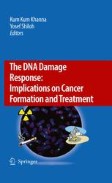Search
Search Results
-
Comparing the efficacy of regorafenib and 5-fluorouracil-based rechallenge chemotherapy in the third-line treatment of metastatic colorectal cancer
BackgroundThe optimal treatment for metastatic colorectal cancer (mCRC) after the second line is still controversial. Regorafenib has been the...

-
Hypoxia in Drug Resistance and Radioresistance
Tumors mostly experience hypoxia or hypoxic stress as they progress, especially for tumor cells that are located far from the functional blood...
-
Chemoresistant ovarian cancer enhances its migration abilities by increasing store-operated Ca2+ entry-mediated turnover of focal adhesions
BackgroundAmong gynecological cancers, ovarian carcinoma has the highest mortality rate, and chemoresistance is highly prevalent in this cancer....

-
Evaluation of Antiproliferative Activity, Safety and Biodistribution of Oxaliplatin and 5-Fluorouracil Loaded Lactoferrin Nanoparticles for the Management of Colon Adenocarcinoma: an
In Vitro and anIn Vivo StudyPurposeColon adenocarcinoma is the most common form of gastro intestinal tract cancer, predominantly in ageing population. Chemotherapy with...

-
Targeting the PI3K Signalling as a Therapeutic Strategy in Colorectal Cancer
Colorectal cancer (CRC) remains one of the leading causes of cancer mortality worldwide. Regarded as a heterogeneous disease, a number of biomarkers...
-

-
Metformin synergizes 5-fluorouracil, epirubicin, and cyclophosphamide (FEC) combination therapy through impairing intracellular ATP production and DNA repair in breast cancer stem cells
Metformin, an AMPK activator, has been reported to improve pathological response to chemotherapy in diabetic breast cancer patients. To date, its...

-
A single-arm phase II trial of combined chemotherapy with S-1, oral leucovorin, and bevacizumab in heavily pre-treated patients with metastatic colorectal cancer
BackgroundThe mean 5–6-month survival after failed standard chemotherapy for metastatic colorectal cancer (mCRC) necessitates more effective...

-
CCAR2 deficiency augments genotoxic stress-induced apoptosis in the presence of melatonin in non-small cell lung cancer cells
Melatonin exhibits oncostatic activity in several cancers but does not lead to cytotoxicity in estrogen receptor (ER)-negative non-small cell lung...

-
A comprehensive review of the preclinical efficacy profile of the ErbB family blocker afatinib in cancer
Afatinib (also known as BIBW 2992) has recently been approved in several countries for the treatment of a distinct type of epidermal growth factor...

-
MicroRNA: a prognostic biomarker and a possible druggable target for circumventing multidrug resistance in cancer chemotherapy
Multidrug resistance (MDR) is a major obstacle to successful cancer treatment. It is often associated with an increased efflux of a variety of...

-
Pancreatic-carcinoma-cell-derived pro-angiogenic factors can induce endothelial-cell differentiation of a subset of circulating CD34+ progenitors
BackgroundCD34 + progenitor cells comprise both hematopoietic and endothelial progenitor cells. Recent studies suggest that circulating endothelial...

-
Cancer Biomarkers Associated with Damage Response Genes
The development and validation of prognostic and predictive cancers biomarkers associated with damage response genes is a rapidly moving field....
-
Colorectal Cancer: Optimization of the Combination of 5-Fluorouracil and Irinotecan
Colorectal cancer (CRC) is the third lead ing cause of cancer in both men and women worldwide (Goldberg, 2005). Upon diag nosis, 19% of CRC cases are...
-
Functional Imaging of Multidrug Resistance and Its Applications
The emergence of multidrug resistance (MDR) is a major obstacle to the success of antineoplastic therapies [1]. The classical mechanism underlying...
-
Targeted Therapies for Prostate Cancer
Prostate cancer is the second leading cause of cancer deaths in males in the USA. Prostate cancer is a highly morbid disease, especially upon its...
-

-
A preclinical evaluation of pemetrexed and irinotecan combination as second-line chemotherapy in pancreatic cancer
Gemcitabine (GEM)-based chemotherapy is regarded as the standard treatment of pancreatic adenocarcinoma, but yields a very limited disease control....

-
Molecular basis of antifolate resistance
Folates play a key role in one-carbon metabolism essential for the biosynthesis of purines, thymidylate and hence DNA replication. The antifolate...
